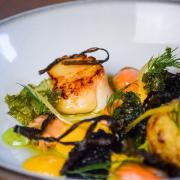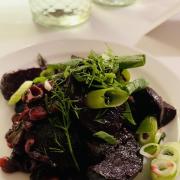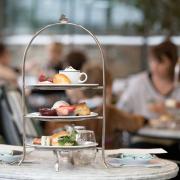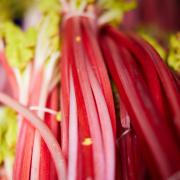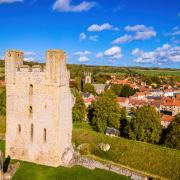Meet the women beef farmers who add a little extra tender loving care to produce some of the country's finest meat. Our food and drink consultant Annie Stirk reports
More women it seems are taking the bull by the horns and embarking on a career in beef farming. One of them is Heather Whittaker, a 57 year-old Yorkshire woman, who swapped her career as a research ecologist for the role of ‘surrogate mum’ to a 100-strong herd of Hereford cattle. ‘I never saw my inexperience as a hindrance; if anything it’s been more of a positive because I’ve been able to bring a fresh approach to beef-farming,’ says Heather.
Her life-changing decision was made when a neighbouring farmer retired and his 26-hectare farm in Halifax came up for sale. After exploring many possible uses for the farmland, Heather decided to start a herd of Pedigree Herefords (recognised by their distinctive white face and red coat) and enrolled on several agricultural courses. ‘It’s a breed renowned for its docility and ease of management and in this part of West Yorkshire, the land is suitable for little else,’ adds Heather.
Today the Coley Poll Herefords produced at her Coley Walks Farm have certainly become a labour of love for Heather, who gets up at 5am and ‘finishes late’ seven days a week, with the help of just one full-time worker. ‘Whether the animals are housed on straw beds for the six months, or out grazing, they need constant vigilance,’ she says.
‘During the long winter months, it’s all hands-on, particularly when feeding and mucking out. One of my busiest times is early January, when I begin training animals for showing. This often proves to be a slow and time consuming exercise, needing huge amounts of patience and empathy with the young stock so they gain confidence, trust and respect.’
Heather is one of a number of women who are members of the new Ladies in Beef campaign to promote English beef run by EBLEX, the organisation for the English beef and sheep meat industry. Fellow female beef farmer Rosey Dunn, also part of the campaign, looks after 190 cattle at her and her husband’s farm in Stockton on Forest, York. She says it’s the extra special attention that often sets women beef farmers apart. ‘Women are attentive stock people,’ says Rosey, ‘and this can bring the best out in livestock.’
Heather agrees and adds: ‘For me, the welfare of the herd is paramount with one of my aims being to understand the psychology of each animal. Personally, I believe that they should be raised in an atmosphere that limits their exposure to stress, in order to enhance their quality of life. The majority of the farm stock is halter trained so the herd can be led, and there is no requirement for any raised voices, or any kind of brute force.’
For Heather this means taking extra special care of the stock from the moment of birth, making sure the calves are suckling properly and the mothers remain calm. ‘When it’s time for weaning, I have introduced a staged procedure to minimise the stress to both the calf and the dam,’ she says. ‘Although it may take me a little longer, they are not fearful, and the cow sheds remain virtually noise free.’
All this tender loving care ensures that the end product – the meat – is of the highest quality. Christine Thompson, a farmer’s daughter and wife, who runs a 500 acre-farm on the Duncombe Park Estate, on the outskirts of Helmsley, says although the job is hard work, providing quality produce makes it all worthwhile.
‘All of it is a challenge but there is nothing more satisfying than seeing the harvest in and watching the animals thrive.’
Like Heather and Rosey, Christine is keen to ensure that the country realises that British produce is amongst the highest quality in the world.
‘Meat is still imported into the British food chain from all parts of the world, and we have to ensure that the British consumer is aware of what they are buying,’ says Christine. ‘We simply want to inform the British housewife that British beef comes from farms with some of the highest welfare standards in the world and encourage her to buy British wherever possible.’
In fact, scientists at Bristol University have recently shown that traditional beef animals fed grass, and in particular grass from bio-diverse pastures such as those worked by Heather, produce a better meat colour, a prolonged shelf-life and increased levels of long-chain Omega-3 essential fatty acid when compared to beef produced intensively. ‘The finishing on grassland produces a marbled beef that adds the distinctive flavour when cooked, and the slow maturing gives an excellent eating quality without being fatty,’ adds Heather.
And the proof is in the pudding. Seven years of hard work and determination has seen Heather go from novice to ‘know-how’ with a raft of national awards, and her beef on sale exclusively at Weeton’s of Harrogate farm shop. Though it’s been a steep learning curve for Heather, she’s never looked back.
‘When I first started, I was overwhelmed by the help and support from neighbouring farmers and I was never off the phone to the vet,’ she says. ‘Today, I’m personally showing the calves at local and national agricultural shows and the Pedigree Herefords have become the gold standard for taste in the UK.’
The print version of this article appeared in the February 2012 issue of Yorkshire Life
We can deliver a copy direct to your door – order online here



